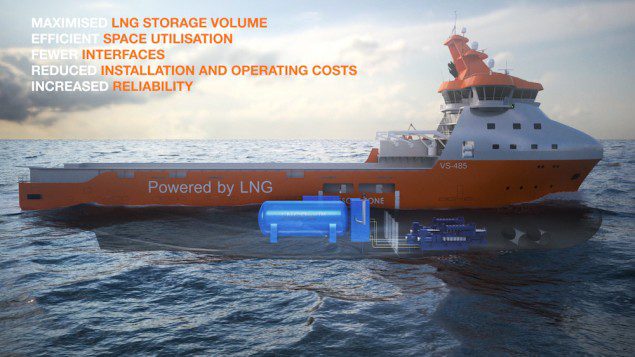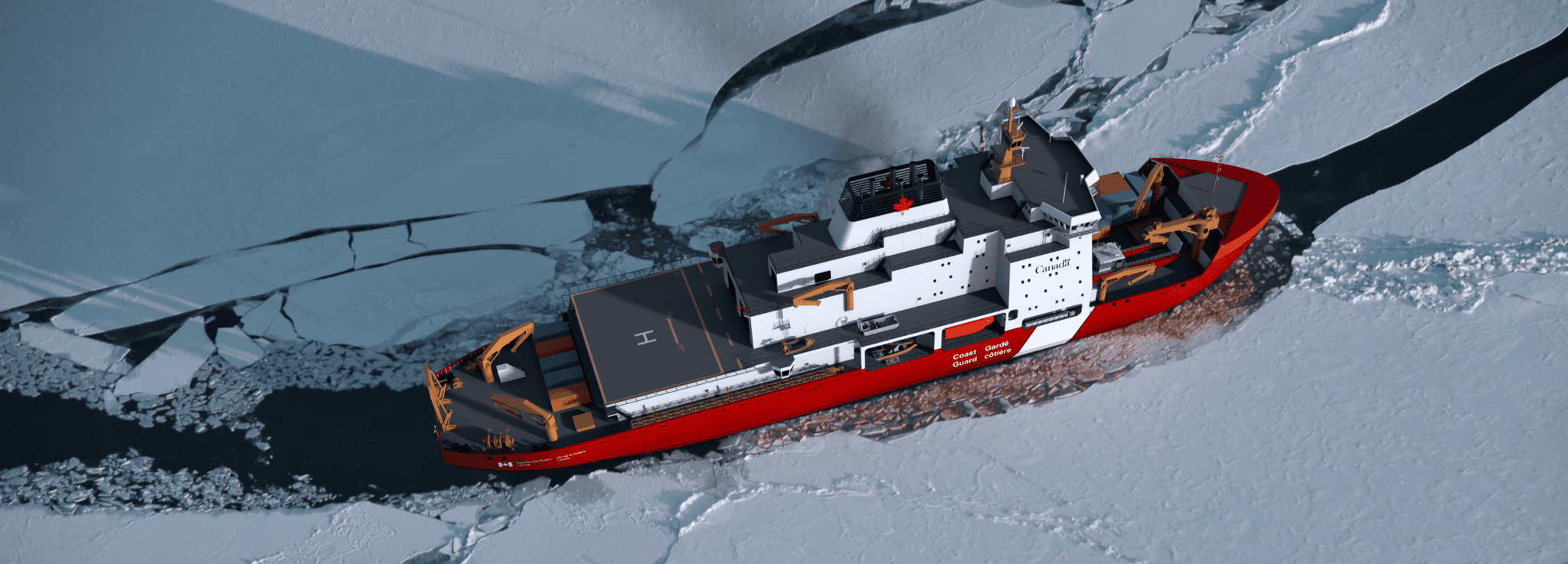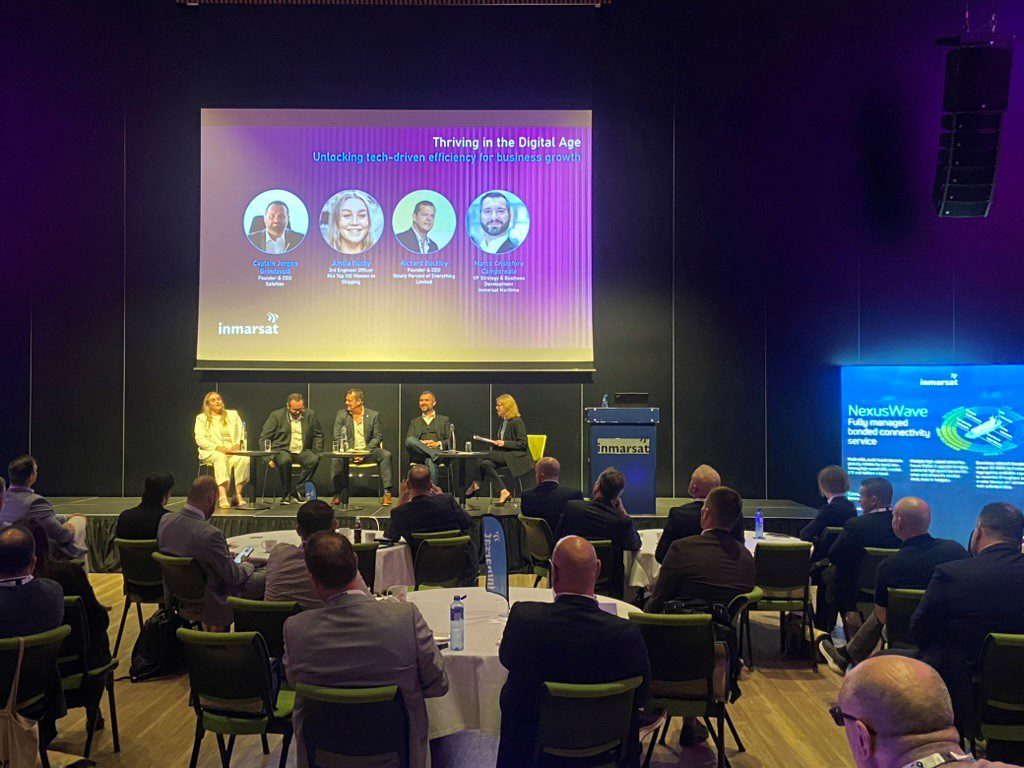
Wärtsilä Corporation, Press release, 9 September 2014 at 11 am EET
The new Wärtsilä LNGPac, the upgraded version of the company’s successful LNG fuel handling system, has been granted an AIP (Approval in Principle) Certificate from the classification society DNV GL. The certificate will be presented at the Wärtsilä stand in Hall A4, Booth 305 at the SMM conference and exhibition in Hamburg, Germany today, 9 September.
The AIP Certificate covers Wärtsilä’s innovative improvements to the original LNGPac. The new solution has removed the heating media skid and its pumps, and includes an improvement to the Wärtsilä Cold Recovery solution. The certificate is based on technical material and safety analyses, and includes documentation concerning normal operation of the system and a presentation of risk scenarios. In effect it means that the system is judged to be safe and reliable and that it will be approved by classes in actual projects.
“This is an important step in making this new feature of the Wärtsilä LNGPac available to the marine market, and represents an expected verification of the technical aspects that have gone into the development of this system,” says Jaakko Eskola, Senior Executive Vice President & President, Ship Power, Wärtsilä Corporation.
“The presentation of this approval in principle marks another chapter in a longstanding and successful cooperation between Wärtsilä and DNV GL. The development of the first LNGPac and its installation onboard the Bit Viking, the first LNG conversion of a vessel in service, were milestones in the uptake of LNG as a ship fuel, and this upgraded LNGPac is another significant step forward,” says Dr Gerd-Michael Würsig, DNV GL Business Director for LNG fuelled ships.
“As DNV GL’s experience with LNG has grown over the years, so too has our conviction that LNG can make a significant and positive contribution to the efficiency and sustainability of the maritime industry as a whole. To keep this momentum for the use of LNG as a ship fuel, DNV GL will continue to work with partners like Wärtsilä to ensure that owners and yards can be confident that this technology meets strict safety and reliability standards,” he continues.
The heating media skid, a complete circuit of heat exchangers, pumps and piping, was earlier used to evaporate LNG for pressurising the storage tank and to provide the engine with the correct gas temperature. In looking beyond the fuel gas system, Wärtsilä has demonstrated its ability to integrate multiple interfaces within the LNGPac. Instead of the heating media skid, the new LNGPac system directly utilises the engine’s cooling water, which results in fewer interfaces and less installation work for the shipyard. By eliminating electrical consumers, Wärtsilä enables the vessel to become even more environmentally friendly.
New innovative solutions have been applied to almost every aspect of the new, compact and easy to install fuel gas system. Besides the removal of the heating media skid and improvements to the Cold Recovery solution, the new LNGPac features innovations such as an integrated airlock and control cabinet, a more compact bunkering station, an enclosed or integrated gas valve unit, and maximised LNG storage volume. Several of the features have been patented by Wärtsilä.
The Wärtsilä LNGPac
Wärtsilä introduced the LNGPac in 2010. It comprises a complete system for LNG fuel handling, which when introduced included the bunkering station, the LNG tank and Tank Connection Space with the required process equipment, the heating media skid, and the control and monitoring system. It is a unique system that has proven to be a valuable enabler of LNG fuel for marine applications with more than 20 LNGPac systems in operation or under construction. By upgrading the system into a more compact and technically advanced version, safety and reliability will be enhanced, while the capital and operating expenditures (CAPEX & OPEX) will be reduced. The new system has fewer moving parts, and therefore less maintenance is required. Furthermore, the compact design and advanced integration of components makes installation at the shipyard faster and easier. This development has been made possible thanks to Wärtsilä’s unique position and comprehensive in-house knowledge of all key components of the vessel’s machinery, fuel gas handling system and ship design.
Wärtsilä is an industry leader in the development of DF (dual-fuel) engine technology, and has led the way in developing a complete value chain of systems, solutions and bunkering arrangements – both onboard and shore-based – to accelerate the use of environmentally sustainable and economically competitive LNG fuel. These latest developments are fully in line with Wärtsilä’s commitment to ensuring better economic and environmental performance for the marine sector.
The upgraded LNGPac system was officially launched during the ONS 2014 conference and exhibition being held in Stavanger, Norway from August 25 to 28.

 Join The Club
Join The Club











